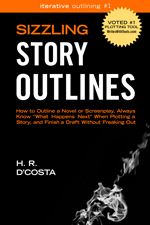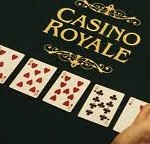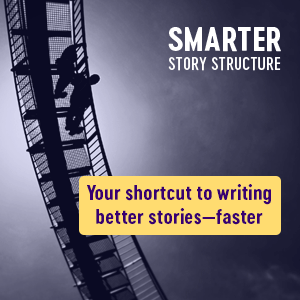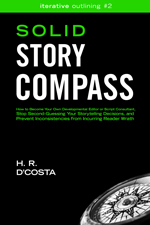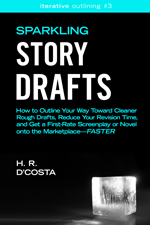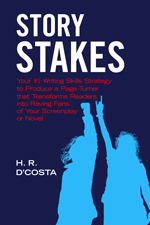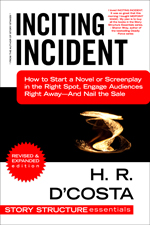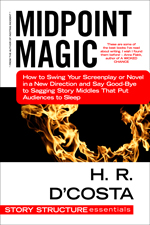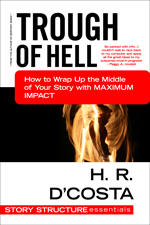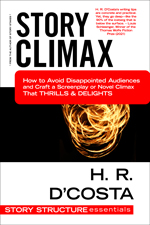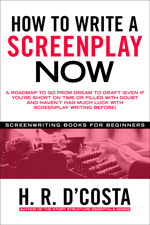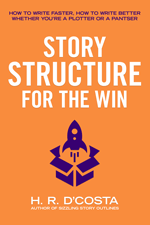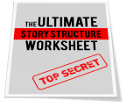As an aspiring screenwriter, you probably spend a lot of time on mechanics:
- how to write a script outline
- how to weave subplots into your script
- how to format your script correctly
- how to write realistic dialogue
- how to introduce your hero…
…but how much time do you spend assessing your screenwriting attitude?
Do you harbor negative attitudes about the likelihood of your success? Is that what’s holding you back (as opposed to lack of talent)?
Before 1954, it was considered physiologically impossible to run a mile in less than four minutes…simply because no man had accomplished the feat before. Then one man–Roger Bannister–did. Weeks after his triumph, several other men followed suit. Did their bodies suddenly undergo a radical transformation? No. But their attitudes did.
Before Roger Bannister, these athletes considered a 3:59 mile impossible, perhaps engaging in actions which proved their erroneous belief, in what psychologists have deemed the self-fulfilling prophesy.
Here’s another example: the classic Pygmalion in the Classroom study. In this experiment, two psychologists told San Francisco elementary school teachers that based on IQ tests, some of their students were about to surge in intelligence. However, no IQ testing had been conducted. The “smarter” students had been randomly selected.
Eight months later, when real IQ tests were administered, the prophesy became a reality. The students who had been randomly assigned to the “smarter” category did in fact exhibit an increase in their IQ scores compared to the students in the control group.
So how do self-fulfilling prophesies relate to your dream of becoming a screenwriter? According to the idea of the self-fulfilling prophecy, if you believe it’s impossible to break into Hollywood, then you’re likely engaging in behaviors which negatively affect your output–thereby fulfilling your prophecy.
For example, you don’t ruthlessly revise your screenplay before submitting it to the Nicholl screenwriting contest because you don’t really think you have a shot at placing in the semi-finals or above.
Or you’ve given up on your spec script because this year, according to the doomsayers, Hollywood has been buying fewer than ever.
Or you don’t work on your dialogue-writing skills because you know there’s no way you’ll achieve the genius of Nora Ephron or Aaron Sorkin.
In other words, because you think the odds are impossible, you only put in less than your best…basically ensuring your failure.
There’s no denying it. Selling a script is a long shot. Having a long-term career in Hollywood is even harder to achieve. But, if you’re harboring negative self-fulfilling prophesies about your chances of success, your odds get even worse.
You might be familiar with Julia Cameron’s The Artist’s Way. (If you’re not, you should be. Although it’s primarily aimed at novelists, it’s a great guide on ways to overcome the inner critic). In it, Cameron argues that there has to be a certain number of books on the New York Times bestseller list…why can’t one of them be yours?
The same principle applies to screenwriting. Somebody has to make the semi-final–and final–rounds of the Nicholl screenwriting competition. Why can’t that be you? Hollywood has to buy some spec scripts otherwise they wouldn’t be producing any product. Why can’t one of those spec sales be yours? Carson Reeves over at Scriptshadow has given an “impressive” rating to a few amateur scripts–why can’t the next one be yours?
If you’re really dreaming big…the Academy has to nominate at least 5 (if not more) films for Best Picture.
Why can’t one of them be yours?
Now, that’s not to say that by cultivating a rosy attitude, you’ll automatically achieve success, let alone an Oscar nomination. But you increase the odds of fulfilling your dream if you don’t actively sabotage it through negative thinking.
So…purge yourself of negative self-fulfilling prophesies and persist.
For how long? Until making it in Hollywood is no longer a dream you keep close to your heart. If you need an extra dose of inspiration, check out screenwriting tip #2 from the King’s Speech…
Crystal Ball by Sean Hobson
